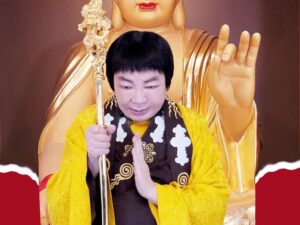D03.4(A)-Buddhism for Beginners, Karmic Effects (DISCOURSE ONLY)
- Description
- Curriculum
- FAQ
- Reviews

This is the second part of a 1995 discourse from Taiwan on “The Never Erring Principle of Receiving the Effects of the Causes You Plant” that states the principle that you should be concerned about the causes you plant, not the effects. It also discusses what it means to have “good fortune” and who can really practice the esoteric form of Buddhism.
The curriculum video is from a reading of a preliminary translation of this discourse by Zhaxi Zhuoma Rinpoche at a Lemonade Sangha class given on January 30, 2022.
This free course does not include any assignments, quizzes, supplemental materials, or group discussions that you can find when the full course is offered in D03.4.
Click on the “Curriculum” tab to review this course. If you have not registered for a membership, please click on “Membership” on the top menu bar to select your membership and enroll in this course. You are also required to complete the application form provided in course “G02-Spiritual Autobiography” prior to being admitted to either the BUDDHIST STUDIES or the XIUXING SEMINARY PROGRAMS. Click for detailed User Guide under the “STUDENT MANUAL” in the website’s top menu bar for more information.
Prior to viewing this course, you are required to listen to the caveats provided in “PRELIMINARY STEPS” of Section 1 of the curriculum, which is a requirement for all preliminary translations of the Buddha Master’s teachings and complete “D01(A)-The Supreme and Magnificent Dharma”.




